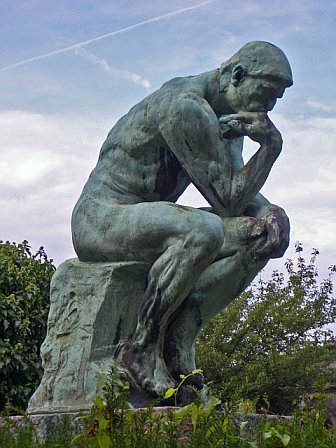
Everything good in human life comes from reason. By “reason” I mean rational, reality-based measures to attain survival and happiness in life.
The primary arenas in which reason operates are science and business. By “science” I mean genuine science, based on the Aristotelian methods of logic and induction. By “business” I mean free market enterprise, where neither criminal fraud nor government manipulation is involved. Business, in this sense, is rarely permitted, but nevertheless has (with the help of science) accomplished a great deal in recent centuries, especially.
It is true that reason does not always lead to success. Sometimes what people call “reason” is profoundly evil and irrational. The government-inspired pseudo-scientists of the Nazi and Communist regimes come to mind. The clever and “thought out” strategies of Islamic terrorists on 9/11 (who accurately counted on moral cowardice among the citizens and its leaders) also comes to mind.
Reason does not guarantee an error-free result. And it does not rule out the possibility of rationalization, which means “rigging the conclusion” or evading relevant knowledge when thinking things out. Not all who reason and think are intellectually honest. In other words, there’s no guarantee that those who are thinking are doing so honestly, or with rational purposes in mind. The philosopher Immanuel Kant, who maintained that the mind is impotent to know anything, and that man has a blind moral duty to selfless sacrifice for alleged authorities, comes to mind.
But you cannot blame this on reason. You cannot blame the choice of some people to subvert or distort reason on reason itself. In fact, their distortion of something that by its nature (when not subverted) is efficacious and glorious is proof of just how valuable (and potent) reason is.
What I’m asserting about civilizations applies equally to individuals. Civilizations are nothing more than groups of individuals, most of whom follow or exhibit the dominant trends of the day. Throughout history, there has been some reason in most cultures. But reason has been the dominant or consistent trend only rarely — if ever. Aristotle, the Renaissance, the United States founders such as Jefferson … these are the rare and glorious standouts.
An individual seeking to practice reason is attempting to survive, flourish and live the good life. The “good life” includes the benefits that come from using reason. Reason is not the same as emotion; but it’s not the same as suppressing emotion, either. A reasonable person puts reason — logic, facts, reality, and science — first. He carefully observes, calculates and plans his life as possible and necessary. It’s in this context that he enjoys life — and feels good, pleasurable, fulfilling emotions. Happy emotions cannot happen outside the context of a life lived by reason. At the same time, a life lived by reason followed by the suppression of emotions is meaningless and repressive.
In seeking mental health, a person applies reason to his or her emotions. Reason and facts trump emotions. This isn’t done as a “technique” for “making oneself feeling better.” It’s not a shortcut to effortless happiness. It’s the only means of happiness possible. And to “work,” it has to be done as a regular, consistent habit, not only in a crisis when needed. Sadly, most human beings (in my observation) apply reason only in a pinch, only when its evasion is immediately impossible or will even literally kill them.
Most societies are the same way. Irrationality — by government or religious authorities, up through and including the present time — has been the norm, not the exception. If people were more willing to apply reason consistently to their daily lives, they would be far less willing to accept so much unreason from those who govern them.
Reason is not infallible. But it contains the corrections needed to advance beyond errors. Errors are discovered and corrected through the use of reason. Faith, supernaturalism, and subjective feelings (the alternatives usually offered to reason) offer no such thing. Subjective feelings simply tell you to go on the urge of the moment, and never to think. Faith and supernaturalism often teach rules of life, but you’re not allowed to question them. Maybe they make sense, or maybe they don’t. You must follow them either way. Suppression of thought and emotion usually encouraged by religion? That’s not reason.
Supernaturalism and subjective feelings are pursued as a means to escape the responsibility of thought. Yet evading thought creates so very many problems. If people were only willing to give reason and thought a chance … how different their lives, and the world as we know it, would be.
Be sure to “friend” Dr. Hurd on Facebook. Search under “Michael Hurd” (Rehoboth Beach DE). Get up-to-the-minute postings, recommended articles and links, and engage in back-and-forth discussion with Dr. Hurd on topics of interest.
